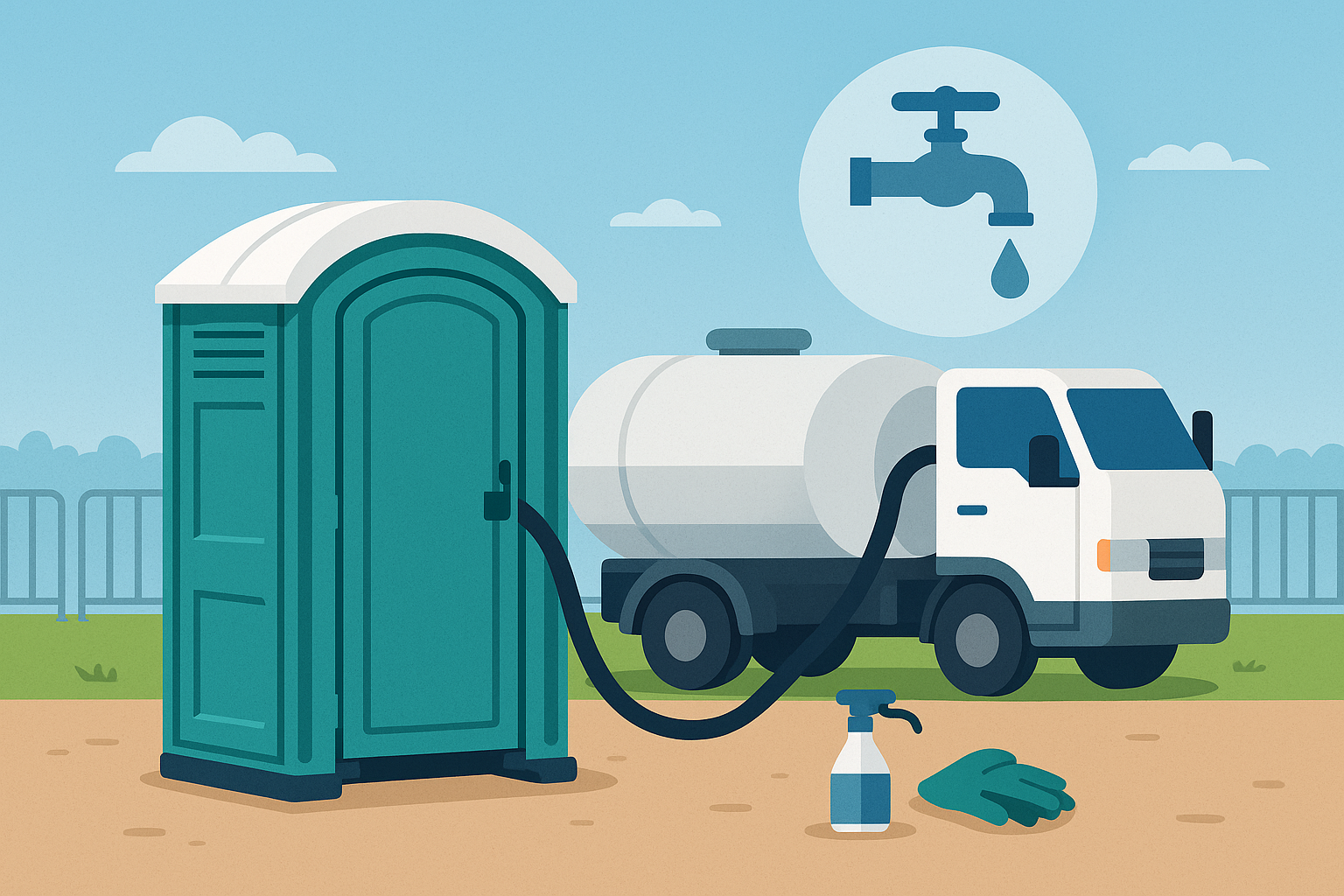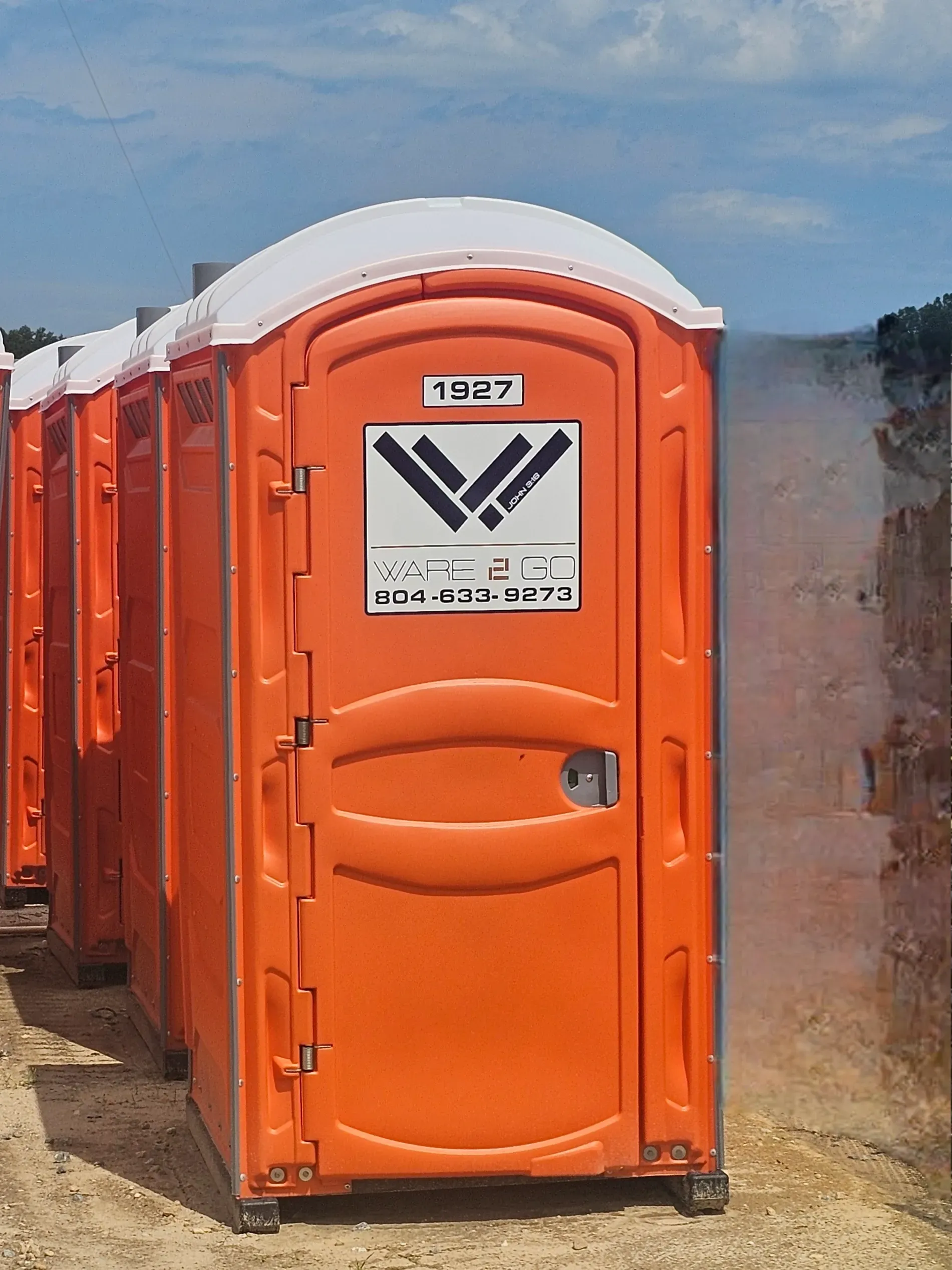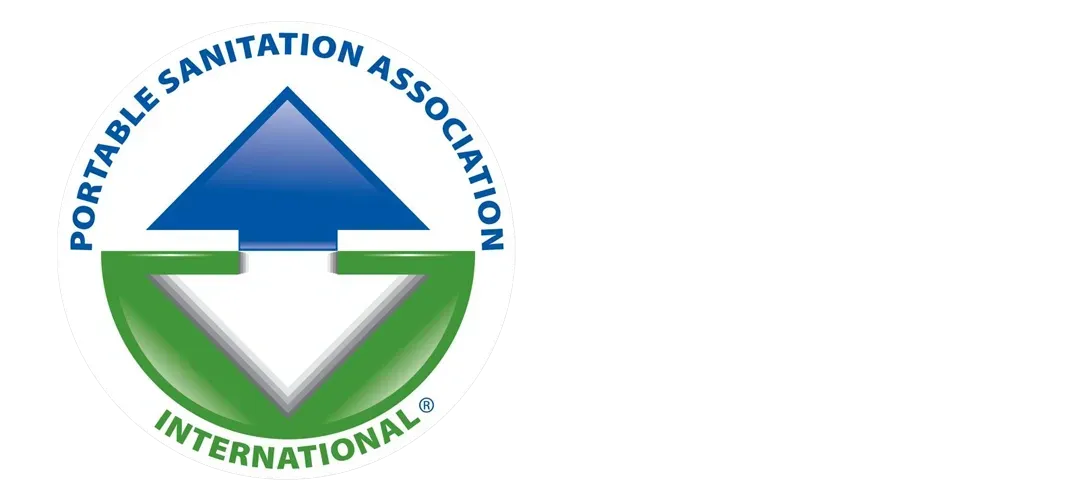
How Are Portable Toilets Emptied? A Complete Guide to Waste Removal and Sanitation
May 23, 2025
While renting a portable toilet includes regular servicing by professionals, some individuals or organizations may wonder: How are portable toilets emptied, and where does the waste go? Proper disposal is crucial for maintaining hygiene, complying with regulations, and protecting the environment. In this guide, we’ll break down the process of how your portable toilet service provider uses disposal locations and explore their best practices for handling portable toilet waste.
Understanding Portable Toilet Waste Management
Portable toilets, such as porta potties, restroom trailers, and handicap accessible porta potties, collect human waste in a holding tank beneath the seat. This waste includes urine, feces, and toilet paper, mixed with deodorizing and sanitizing chemicals to reduce odor and break down solids.
Unlike traditional plumbing, portable toilets do not have a direct connection to sewage lines. Instead, the waste must be extracted and disposed of using specialized equipment and facilities. Here’s a step-by-step guide on how the process works.
How Your Portable Sanitation Provider Empties a Portable Toilet
Step 1: Gather the Right Equipment
Before they begin, it’s important to have the right tools for the job. These include:
- Protective Gear – Gloves, mask, and safety goggles
- Suction Pump or Waste Transfer System
- Holding Tank or Waste Transport Vehicle – To temporarily store the waste
- Cleaning and Sanitizing Supplies – Disinfectant, deodorizer, and fresh chemicals
If you are renting from a professional portable toilet rental service, their trained technicians will handle this process safely and efficiently.
Step 2: Pumping Out the Waste
Most portable toilets are emptied using a vacuum pump system. This process involves:
- Connecting the suction hose to the toilet’s waste tank.
- Activating the pump to transfer waste into a secured holding tank.
- Ensuring all solids and liquids are removed before disconnecting.
Step 3: Transporting the Waste
Once the waste is removed, it must be transported to an approved disposal facility. Transporting human waste requires compliance with local health and environmental regulations, ensuring safe handling and preventing contamination. RV and camper pumping services often follow similar procedures for handling waste from recreational vehicles.
Step 4: Cleaning and Sanitizing the Portable Toilet
After emptying, they thoroughly clean the portable toilets:
- Rinse the interior with water to remove remaining residue.
- Scrub surfaces with disinfectant to kill bacteria and eliminate odors.
- Restock supplies such as toilet paper and soap.
- Add fresh deodorizing chemicals to the waste tank for continued sanitation.
Professional sanitation services use specialized cleaning solutions and equipment to maintain hygiene and safety.
Where Does Portable Toilet Waste Go?
Once collected, portable toilet waste must be disposed of at designated locations. These include:
1. Wastewater Treatment Plants
Most portable toilet waste is processed at municipal wastewater treatment plants. These facilities use advanced filtration, biological treatment, and chemical processes to break down waste and remove harmful bacteria before returning clean water to the environment.
2. Septic Systems
In rural areas without direct access to sewage treatment plants, waste may be deposited into a septic system. This method involves storing waste in a large underground tank, where it undergoes natural bacterial breakdown before being safely absorbed into the soil through a drainfield.
3. Specialized Sanitation Facilities
Some waste management companies operate dedicated sanitation facilities for processing portable toilet waste. These locations use high-powered treatment systems to break down waste, separate solids and liquids, and neutralize harmful pathogens.
4. Authorized Dump Stations
RV parks and some campgrounds have designated dump stations where portable toilet waste can be legally disposed of. However, not all facilities accept large quantities of waste, so it’s important to check with local authorities before attempting disposal.
Why Professional Waste Disposal Matters
Improper waste disposal can lead to environmental contamination, legal penalties, and serious health risks. Professional sanitation companies follow strict guidelines to:
- Prevent groundwater contamination.
- Reduce the spread of bacteria and disease.
- Ensure compliance with local, state, and federal waste disposal regulations.
Hiring a reputable portable restroom rental service ensures that waste is handled responsibly, giving you peace of mind that sanitation remains a top priority.
Best Practices for Portable Toilet Maintenance
To keep portable toilets in optimal condition, follow these best practices:
- Schedule Regular Servicing: Frequent waste removal prevents overflows and bad odors. Servicing at least once a week for long term portable toilet rentals is common.
- Use Proper Chemicals: Deodorizing solutions help break down waste and maintain hygiene.
- Place Units Strategically: Ensure portable restrooms are on stable ground, away from direct sunlight to reduce heat-related odors.
- Encourage Handwashing: Renting a portable handwashing station improves overall hygiene at job sites and events.
Final Thoughts
Emptying a portable toilet requires proper equipment, careful handling, and adherence to strict disposal regulations. Whether you’re using construction site portable toilets or luxury mobile restrooms for wedding venues, waste management should always be left to professionals to ensure cleanliness and compliance.
Ware2Go Site Services: Your Trusted Partner For Portable Toilet Rentals in Central Virginia
For those in need of dependable portable restrooms in Central Virginia, Ware2Go Site Services is your go-to provider. We offer clean, well-maintained porta potties, handicap accessible porta potties, luxury restroom trailers and handwashing stations for various applications, including construction sites, weddings, festivals, and 24 hour emergency portable toilet rentals.
Our team ensures that every unit is always clean, always ready, and always Ware2Go! With scheduled maintenance and professional waste disposal, you can trust us to handle the portable sanitation solutions so you can focus on your event or job site.
We proudly serve Caroline County, Spotsylvania County, Hanover County, Stafford County, King George County, and Louisa County. Contact us today at 804-633-9273 or visit our website at w2gositeservices.com to learn more about our portable sanitation solutions.
References:
Tap to share!
Latest Posts







